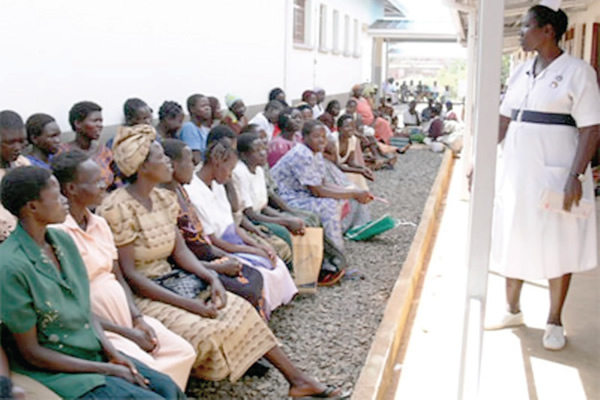The Act also seeks to help reduce maternal and infant mortality rate as pregnant women will now have access to free delivery services while their children are assured of standard paediatric services in the nation’s health facilities as the Act mandates the NHIS to provide free coverage for pregnant women, children who are under five years, the elderly and the physically challenged persons. Similarly, health care services at the grass roots is being addressed by the Act to ensure that people don’t have to travel far to access medical services. Indeed, states can also participate in improving health centres through a counterpart fund that would enable them benefit from the consolidated funds Commenting on the anticipated gains of the new Act, the president of the Nigerian Medical Association (NMA) , Dr, Kayode Obembe during a press conference, noted that the Act which seeks to “protect, promote and fulfil the rights of the people of Nigeria to have access to healthcare services
Healthcare” has provided a proper template for the take off of Universal Health Coverage. “We are highly expectant therefore that the actual value of “not less than 1% of the Consolidated Revenue Fund” would soon be defined by the Budget Office of the Federation, disbursed according to the provisions of the Act and various governance frameworks set up for the actualisation of the spirit and letter of this law. “If 50% of this fund is judiciously expended for primary health care through the NHIS, the appalling health indices of Nigeria would seriously improve by leaps and bounds,” The NMA President declared. He however listed two main challenges which the Act is likely to face during implementation; this includes the counterpart funding of the Basic Health Care Provision Fund by the states and how the local governments will operate the previsions of the Act vested in them, given the current weak state of governance at that level.
”It is alright to say that 50% of the basic Health fund is committed through NHIS. But for the funds to get to rural areas, the community has to provide counterpart fund equivalent to 25% of the fund for disbursement. “How are they going to muster the 25% requested as counterpart funding? Would the states pay up regularly? Is there any force to compel them to pay up for better access and affordability of healthcare for their indigenes? Do the people know their rights as guaranteed by the several laws and statutes of Nigeria?” On the second challenge, Dr. Obembe submitted: “As long as the Local Government tier of administration remains under the State and they maintain a joint account operated under the phantom Ministries of Local Government Affairs, it will continue to be rendered comatose and dysfunctional.
“To add to this eclipsing phenomenon, the National Policy on Health domiciled primary health care under the supervision of Local Government Administration. It is indeed very worrisome how the most important tier of healthcare delivery – the very foundation of it, would be domiciled under the weakest, worst funded, most neglected and in some situations, absent level of governance. This is indeed an absurdity,” he declared.
Source:Nationalmirror Online

 In a move to commence full operation of the National Health Act, the Federal Ministry of Health has constituted a committee to produce a guideline for the implementation of the provisions of the Act. News of the inauguration of the committee was disclosed by the Director, Health Planning Committee, Research and Statistics of the ministry, Dr. Ngozi Azodo in a presentation to the newly established Health Journalist Academy in Lagos recently. Dr. Azodo who is the secretary of the committee told the journalist that the Act is expected to establish a framework for the regulation, development and management of a National Health System, to set standards for rendering health services in the country. The National Health Bill was signed into law by former president Good luck Jonathan on October 31, 2014 and hailed by major stakeholders in the health sector as the solution to the nation’s appalling health system.
In a move to commence full operation of the National Health Act, the Federal Ministry of Health has constituted a committee to produce a guideline for the implementation of the provisions of the Act. News of the inauguration of the committee was disclosed by the Director, Health Planning Committee, Research and Statistics of the ministry, Dr. Ngozi Azodo in a presentation to the newly established Health Journalist Academy in Lagos recently. Dr. Azodo who is the secretary of the committee told the journalist that the Act is expected to establish a framework for the regulation, development and management of a National Health System, to set standards for rendering health services in the country. The National Health Bill was signed into law by former president Good luck Jonathan on October 31, 2014 and hailed by major stakeholders in the health sector as the solution to the nation’s appalling health system.




